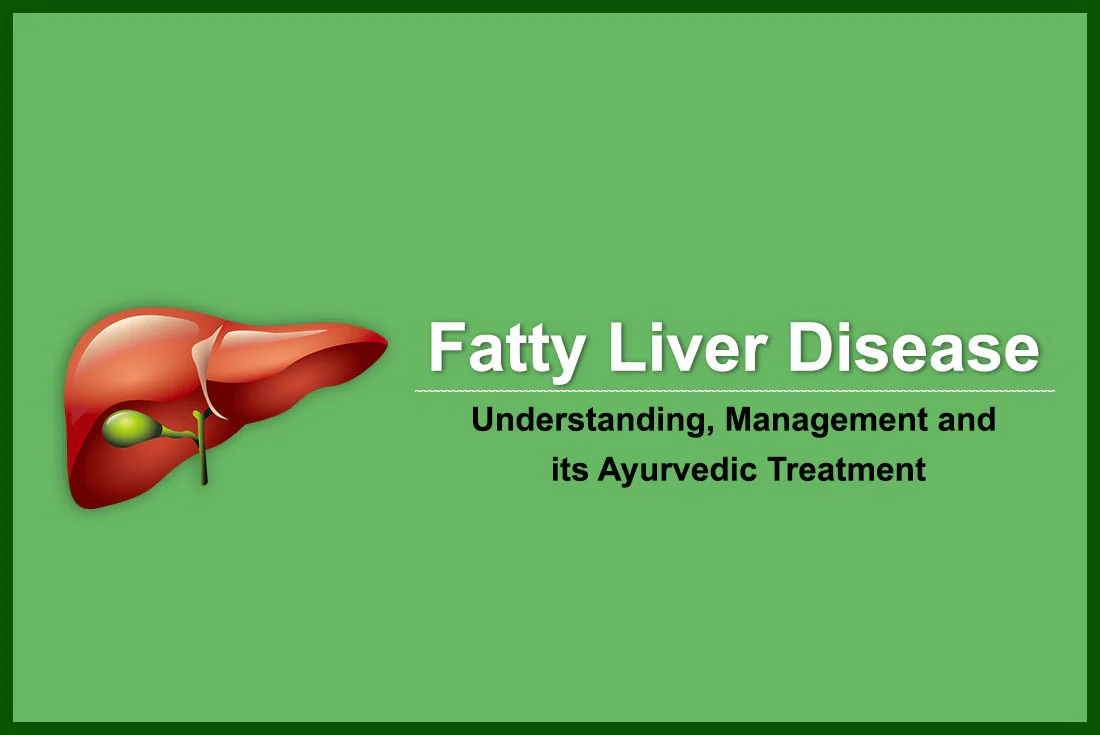Understanding Fatty Liver How Ayurveda Can Help
Situated on the upper-right portion of the abdomen, the liver is the biggest internal organ in humans. The liver's primary jobs include breaking down nutrients from food and eliminating toxins. The liver is the first organ in the body that the blood from the digestive system passes through.
If you are looking for natural remedies for fatty liver, Ayurvedic medicine for fatty liver can help you in various ways.
What is Fatty Liver Disease?
Steatosis, or the buildup of excess fat in the liver cells, is the cause of a fatty liver. It is among the most common liver conditions worldwide. Approximately one in ten people is impacted by fatty liver disease.
The liver naturally contains some fat, but if fat makes up more than 10% of the weight of the liver, it can be diagnosed as fatty liver.
Alcoholic and non-alcoholic fatty livers are the two different kinds. Alcoholic fatty liver is brought on by binge drinking, while the other occurs for other causes. Although non-alcoholic fatty liver disease affects the liver's regular functions, alcoholic fatty liver disease comes with distinct symptoms like fever, jaundice, spider veins, and elevated white blood cell (WBC) counts.
Symptoms of Fatty Liver
At times, fatty liver disease does not produce any signs and, as a result, does not become noticeable at the initial stages. But as the condition progresses, you might notice some of the following symptoms:
● Fatigue
● Abdominal discomfort
● Enlarged liver
● Jaundice from hepatitis (the patient gets yellow skin and eyes)
● Variations in the body, like distension in the abdomen and legs
Fatty liver disease. If not managed, it progresses to liver fibrosis, cirrhosis, and liver cancer.
Ayurvedic Approach to Fatty Liver
Ayurvedic medicine for fatty livers focuses on treating the doshas in one's body. In Ayurveda, fatty liver can be managed with some dietary discipline, herbal medicines, and detoxification treatments.
1. Dietary Changes
A dietary menu including rich whole grains, fresh fruits, and vegetables can keep fatty liver at bay, according to Ayurvedic scriptures. A complete avoidance of processed food items, alcohol, and sugary drinks is advised by Ayurvedic practitioners. Also, drinking plenty of water can help with detoxification.
2. Herbal Remedies
Turmeric (Curcuma longa): Known for its anti-inflammatory properties, turmeric can help reduce liver inflammation and improve liver function. Guduchi (Tinospora cordifolia): This herb supports liver detoxification and enhances immunity. Kutki (Picrorhiza kurroa): Kutki is known for its liver-protective properties and can aid in regenerating damaged liver cells. Kalmegh (Andrographis paniculata): This herb helps in reducing liver enzymes and improving overall liver health.
3. Detoxification
Complete body detoxification can be achieved by Panchakarma treatment. Panchakarma is a process that includes five treatment procedures and is designed to cleanse the body of harmful toxins. It helps in removing the accumulated fat from the liver cells.
4. Lifestyle Modifications
Exercise and stress management can be really helpful in managing a fatty liver. Regular exercise helps burn unwanted fat and improve liver function. Ayurvedic experts recommend yoga and other breathing exercises. Meditation techniques like pranayama could help manage unwanted stress. Stress management is very essential to maintaining a healthy body.
Ayurvedic Medicines in Kerala for Fatty Liver
1. Liver Tonic: These tonics are prepared from a combination of herbs like Bhumyamalaki (Phyllanthus niruri) and Punarnava (Boerhavia diffusa), which are beneficial for detoxification and rejuvenation of the liver.
2. Churna (herbal powder): Drinks such as Triphala Churna, which is a preparation of three fruits, are taken to treat indigestion and decrease the accumulation of fats in the liver.
3. Kashayam (herbal decoction): These are highly concentrated liquid extracts of herbs that are conducive to enhancing liver functions and well-being.
Conclusion
Nowadays, fatty liver disease is becoming much more prevalent, but Ayurveda still provides a non-pharmacological way to cure it. Eating habits can also be changed by sacrificing certain foods, taking herbal medicines, and changing one’s lifestyle. Before choosing Ayurvedic treatment, especially the Ayurvedic medicines in Kerala, it is important to meet a practitioner who will be able to recommend the correct medications for your health condition.
Nonetheless, it is significant to emphasize that the liver is a very important organ that should be healthy and well-functioning. Both welcome Ayurveda and turn a new page closer to a better you.

